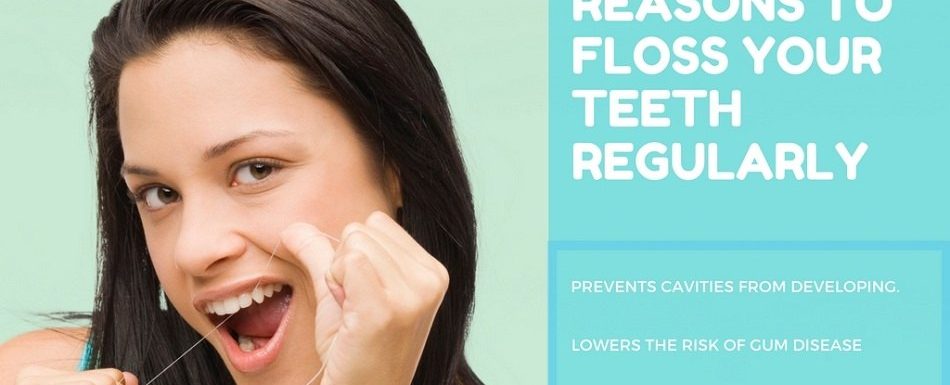
Do you floss your teeth? We all know we should, but according to statistics only a quarter of all adults in the UK floss regularly, and a third of us have never flossed their teeth at all! If you contrast that with the truly toothache inducing £5.8 billion spent on dental treatments in UK every year, it’s hard not to come to the conclusion that things are, well, down in the mouth.
So, why on Earth don’t we floss? Are the hackneyed old excuses – don’t have time, don’t know how, keep forgetting, can’t be bothered – really good enough reasons to neglect our oral health so comprehensively? Of course they’re not.
Perhaps all we need is a little gentle reminder of the benefits of dental flossing and some convincing reasons to explain why dental flossing on a regular basis should be an essential part of everyone’s dental health maintenance regime.
- Regular dental flossing is the best way to prevent cavities from developing.
Tooth brushing is the first line of defence against germs and plaque that cause cavities, but unfortunately it’s not enough to stop the rot. Effective flossing removes plaque and food particles that the brush just can’t reach – between your teeth and under the gumline. - Flossing as part of your dental routine lowers the risk of gum disease.
Plaque build-up can lead to tooth decay and gum disease. If your gums bleed when you brush or floss your teeth, you may have gingivitis (inflammation of the gums) or periodontal (gum) disease. If caught early, both of these can be reversed with good oral hygiene, which includes regular flossing. - Effective flossing can also reduce the risk of other diseases
According to recent scientific research, the bacteria that cause gum disease don’t just stay in the mouth; they are believed to travel to other parts of the body where they can contribute to serious health conditions including diabetes and heart disease! - Regular flossing helps in the fight against bad breath
About a quarter of the UK population is thought to be suffering regularly from halitosis (bad breath), which is socially unpleasant for all concerned. The best method for effectively dealing with bad breath and to prevent its reoccurrence is to brush your teeth, floss your teeth and clean your tongues every day.
Incorporating dental flossing into your oral hygiene routine is a small improvement we can all make, and with irrefutable results. Of course, the correct flossing technique is key for achieving the best outcome.
Start with a piece of dental floss string of about 45cm (18in) length, winding most of it around your two middle fingers so that about 5cm (2 in) of floss are left for you to work with. Hold it tightly between your thumbs and index fingers while you slide the floss gently up and down and back and forth between each tooth. Don’t forget to floss around the base of each tooth including beneath the gumline.
Re-wind the floss around your fingers as you go, so that you always use clean sections of floss as you move from one tooth to another. And be gentle! Don’t be tempted to force or even snap the dental floss – you could cut or bruise you delicate gum tissue.
Article provided by Sara Bryant, an independent content writer working alongside a selection of companies including Dental Healthcare Practice, who were consulted over this post.

Leave a Reply